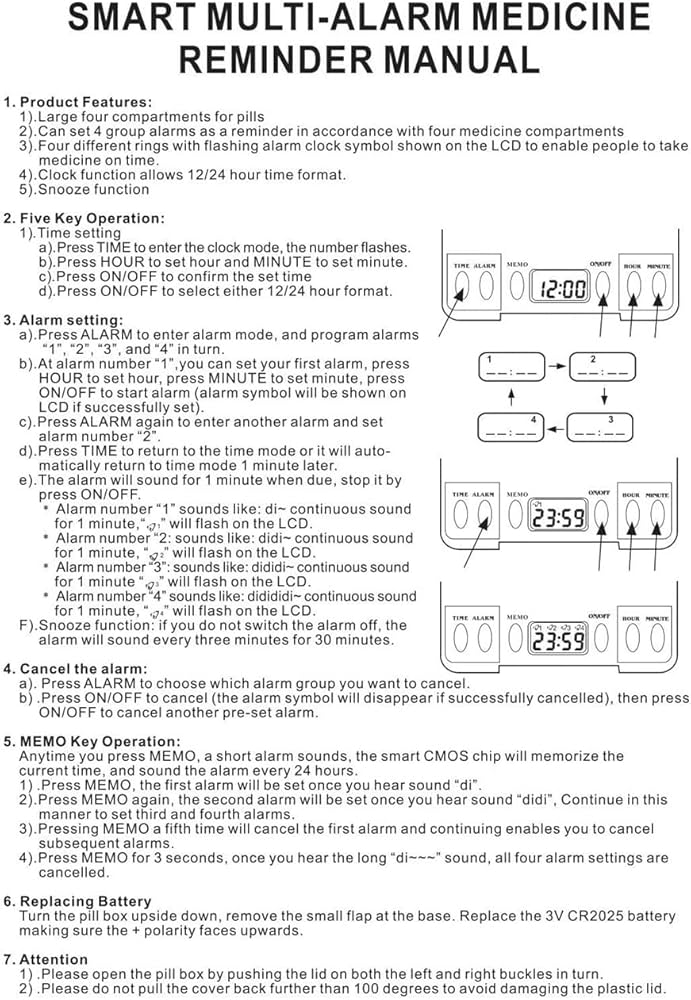
Revolutionizing Medication Compliance: The Intelligent Multi-Drug Capsule from UC San Diego
For countless individuals dealing with chronic health issues, the task of taking multiple medications at varying times daily is essential yet often tedious. Medication compliance has historically posed challenges—patients may forget doses or administer them at wrong times, resulting in adverse outcomes, diminished drug efficacy, and even hospitalization. However, an innovative solution from engineers at the University of California San Diego holds the potential to change this routine—and possibly lives—with a single, intelligent capsule.
An Intelligent Capsule with Scheduled Drug Release
Researchers from UC San Diego’s Jacobs School of Engineering have created a clever capsule designed to deliver various medications at precisely timed intervals throughout the day. Engineered to release drugs in specific phases, this groundbreaking technology may eradicate the necessity for multiple pills and complex medication regimens.
“Our goal is to simplify medication management with a single capsule that is intelligent enough to provide the correct drug at the appropriate dose at the exact time,” stated Amal Abbas, lead author of the study and a recent Ph.D. graduate in chemical engineering from UC San Diego.
A Milestone in Drug Delivery Design
The capsule, recently discussed in the journal Matter, features a smart design. Internally, medications are compartmentalized by barriers made from a lactose and maltose matrix paired with a pH-responsive polymer. These materials are engineered to withstand stomach acid and only dissolve in the more alkaline conditions of the small intestine.
By modifying the density and makeup of the polymer barriers, the research team can instruct the capsule to release medications at predetermined intervals—ranging from a few hours to potentially changing the drug delivery site within the digestive tract.
Proof of Concept: Assisting Parkinson’s Disease Patients
To showcase the capsule’s timed-release capabilities, researchers populated the capsule with three doses of levodopa, a commonly used medication for Parkinson’s disease, at timed intervals. The medication was color-coded using visible food dyes to monitor its sequential release: yellow, green, and red. The experimental findings indicated that the capsule accurately dispensed each dose with precision.
“This timed release of multiple doses could greatly benefit patients with Parkinson’s disease,” Abbas mentioned, emphasizing that maintaining stable drug levels assists in managing motor symptoms and enhancing a patient’s quality of life.
Microrobotic Technology Boosts Efficiency
One of the capsule’s most sophisticated features is its incorporation of microscopic magnesium particles that function as “microrobots.” These particles engage with stomach acid to generate hydrogen bubbles, gently agitating the capsule’s contents. This agitation promotes the dissolution of medications needing rapid absorption and aids in sustaining an alkaline environment, which encourages the orderly release of subsequent medications.
These microrobots also temporarily neutralize stomach acid, ensuring the controlled breakdown of the polymer barriers that protect other drug doses.
Effect on Chronic Disease Management
While the initial trials in mouse models concentrated on Parkinson’s disease, the potential uses for this capsule extend significantly. Patients with cardiovascular diseases frequently navigate intricate routines involving medications like aspirin, beta blockers, ACE inhibitors, and cholesterol drugs, each with unique timing requirements.
Picture a future scenario: A patient swallows one daily capsule that accurately releases aspirin in the morning, beta blockers around lunchtime, and statins at night—effortlessly enhancing compliance and therapeutic effectiveness.
Scalability and Commercial Possibilities
What renders this innovation particularly exciting is its practical design and regulatory viability. All components used in the capsule are FDA-approved, which overcomes a major obstacle for future clinical and market development. Amal Abbas has already initiated the process of founding a startup to deliver this device to the market, with the aim of simplifying daily medication routines for patients globally.
The Path Forward
Upcoming steps for the UC San Diego team include evaluating the capsule’s effectiveness in living organisms, expanding its capacity to accommodate drug regimens over multiple days, and exploring more advanced targeting—delivering specific medications to various sections of the digestive tract.
With future improvements, the intelligent capsule could emerge as a fundamental element in personalized medicine, adaptable for treatments in diabetes management, HIV, tuberculosis, oncology, and even mental health therapies.
Conclusion: An Easier Pill, A Healthier Tomorrow
In a landscape where convenience and compliance are pivotal to effective medical care, the invention of a programmable, single-dose capsule signifies a significant advancement. By integrating biomedical engineering with materials science and microrobotic technology, UC San Diego’s revolutionary approach could eventually simplify even the most intricate medication routines into a straightforward morning habit.
Such breakthroughs not only enhance patient outcomes but also alleviate healthcare burdens, paving the way for smarter, more accessible healthcare for everyone.
Support Science That Matters
If this kind of forward-thinking research resonates with or enlightens you, consider supporting independent science journalism. Your contribution aids in disseminating accurate reporting and vital medical innovations to a wider audience—ensuring that everyone can benefit from the advancements in healthcare.
Together, let’s ensure that transformative knowledge like this reaches those it is intended to benefit.